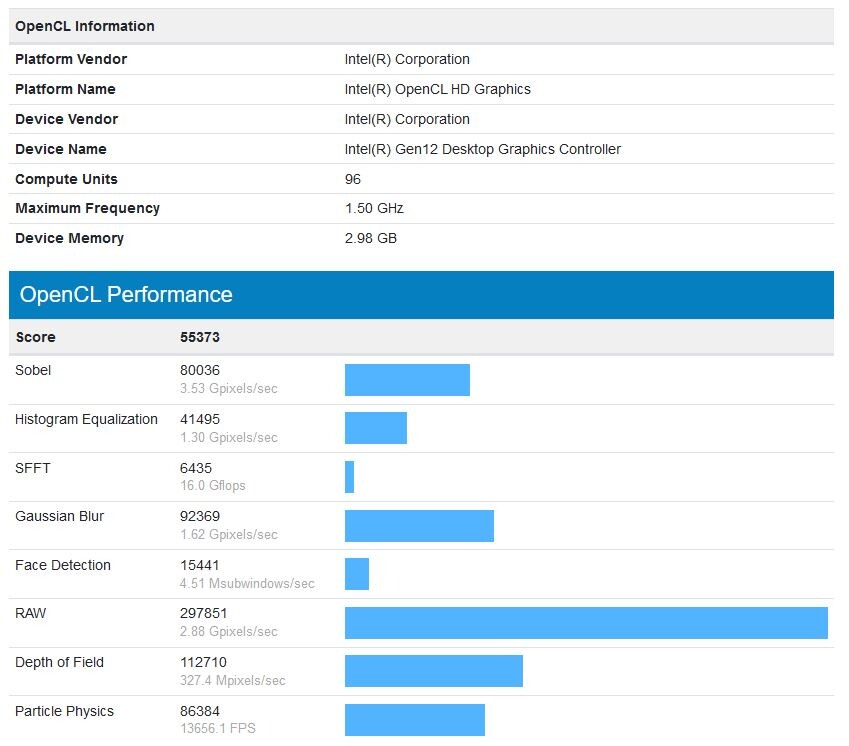

#Opencl benchmark linux install#
Just install p7zip and run the command below. For this example: 75776Mb / (16.4 min * 60) = 77.0 MB/s.ħz benchmark command can be used to measure the CPU speed in MIPS and also to check RAM for errors. # time dcfldd if=/dev/zero of=/dev/sdX bs=4M 18944 blocks (75776Mb) written.dcfldd:: No space left of deviceĬalculate MB/s by dividing the output of the dcfldd command by the time in seconds. See dcflddĭcfldd does not print the average speed in MB/s like good old dd does but with time you can work around that.

Note: Some SSD controllers have compression hardware, which may skew benchmark results. This method is dependent on partition alignment! In other words, if you failed to properly align your partitions, this fact will be seen here since you are writing and reading to a mounted filesystem. The dd utility can be used to measure both reads and writes. Will plot a detailed graphic with the boot sequence: kernel time, userspace time, time taken by each service. Systemd-analyze $ systemd-analyze plot > boot.svg KDiskMark with its presets and powerful GUI calls Flexible I/O Tester and handles the output to provide an easy to view and interpret comprehensive benchmark result. Kdiskmark is an HDD and SSD benchmark tool with a very friendly graphical user interface. Users will need to navigate through the GUI to the benchmark button ( "More actions." > "Benchmark Volume."). This method is independent of partition alignment! There is a graphical benchmark called gnome-disks contained in the gnome-disk-utility package that will give min/max/ave reads along with average access time and a nice graphical display. Note: One should run the above command 2-3 times and manually average the results for an accurate evaluation of read speed per the hdparm man page. Timing buffered disk reads: x MB in y seconds = z MB/sec Timing cached reads: x MB in y seconds = z MB/sec Using hdparm with the -Tt switch, one can time sequential reads. Storage media can be benchmarked with hdparm ( hdparm). time contains the time command and some shells provide time as a builtin command.

The time(1) command provides timing statistics about the command run by displaying the time that passed between invocation and termination. Iperf can be installed, or a different version of iperf is available with iperf3. It has nicely formatted output and a parallel test mode. Iperf is an easy to use point-to-point bandwidth testing tool that can use either TCP or UDP. Various flavors of ttcp can be found in the AUR: The program must be provided on both nodes between which bandwidth is to be determined. Ttcp (Test TCP) measures point-to-point bandwidth over any network connection. Interbench is available in the AUR: interbench AUR. Tip: With careful benchmarking, different hardware can be compared.


 0 kommentar(er)
0 kommentar(er)
